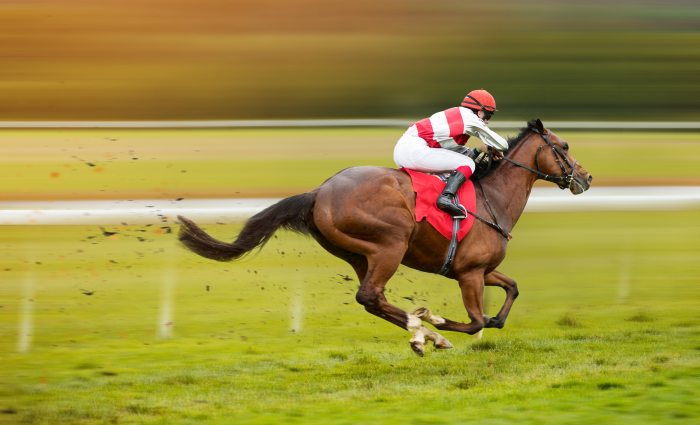The extraordinary sight of five horses galloping through London, sweating and covered in blood, caused the hashtag #Apocalypse to trend briefly on social media last week.
Colliding with vehicles and startling pedestrians, the military horses had been taking part in an exercise in the capital when they were spooked by noisy building works nearby. And while not exactly an omen for the end of days, the incident does give us cause to reflect on the role of working horses in our daily lives.
And it’s a role with a long history. For centuries, horses have transported people, goods and armies, and provided power on farms and in factories.
Then after the second world war, many were replaced by motorised vehicles and machinery. But that doesn’t mean they stopped working.
Today there are around 850,000 horses in the UK. As well as military units, there are 13 police forces with mounted branches. Horses are a familiar sight at football matches and demonstrations as well as ceremonial occasions. But most working horses are now employed in the sport, tourism and leisure industries.
And this is one of the reasons we may fail to recognise horses as “workers”. Our hard-wired anthropocentrism (believing humans are the most important beings) means we often fail to consider that, from a horse’s perspective, what is leisure to us is still work to them. This is compounded by the assumption that it is paid work which matters. We cannot pay horses, so how can we describe what they do as work?
Yet even to the untrained eye, it is hard to describe what many horses do in any other way. It is their physical effort which carries soldiers or police officers, delights punters at the racetrack, or hauls logs from sustainably managed forests.
And they engage in skilful emotional labour too, navigating crowded city streets or anticipating the next move of the rodeo rider.
When we properly consider horses as workers, it becomes clear that they deserve consideration, respect and safe working conditions, just like their human colleagues.
The unsettling scenes in London on April 24 showed what happens when those conditions are violated by a hostile outside world. And it was a reminder that we should bear in mind that while the people involved have largely chosen their line of work, the same cannot be said of the horses themselves.
The questions become tougher still if we take a global perspective. We are clearly a long way from a world in which decent work is a possibility for everyone, regardless of species. In many cases, not only horses, but the people working alongside them are often subject to extremely poor working conditions, or what one researcher calls “shared suffering”.
Stable relationships
In contrast, the working life of London’s cavalry horses is characterised by a high level of care, extensive training and a long retirement. This gives some insight into what is possible in a world where we treat animal workers with respect.
But for many working animals, the reality is very different. And our reluctance to recognise the animal workers among us is a symptom of a bigger problem. As a global society, we often seem unable to recognise our non-human neighbours as anything other than resources for our own benefit – with disastrous consequences.
If we are to find a way through environmental challenges like the climate crisis, we need to find new ways of thinking about the planet and all the species who share it with us. Recognising horses and other animals as workers is one small step along that road.
Recent research has found that working with horses has an influence on people’s understanding of what makes for a “good life”, which then inspires them to take better care of their environment.
This is an example of what one expert calls “interspecies solidarity” – the idea that someone does not need to be the same as us in order for us to care about their wellbeing. And perhaps that’s a sense that our longstanding working relationship with horses could help to reignite.
![]()
Helen Wadham receives funding from The British Academy/Leverhulme Trust, The Sociological Review Foundation and the Maureen Harrington Fund.
Carlos Monterrubio receives funding from The Sociological Review Foundation and the Maureen Harrington Fund.
Kate Dashper receives funding from The Sociological Review Foundation and the Maureen Harrington Fund.



